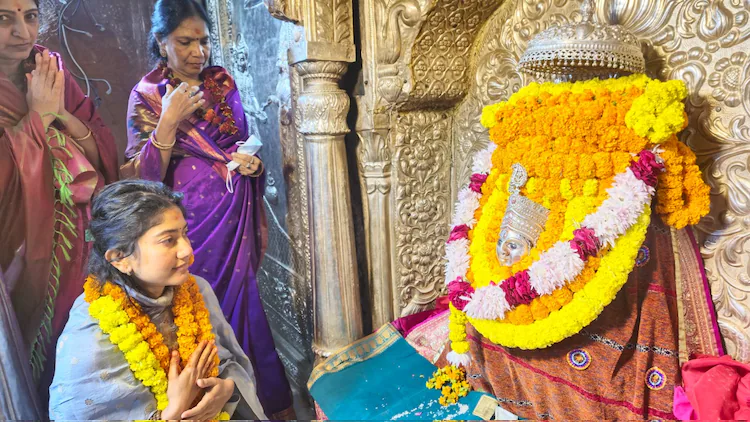A seemingly ordinary visit to a flea market in Hamburg, Germany, turned extraordinary for one German man when he stumbled upon two yellowed pages of Devanagari script. The pages, covered in text resembling Hindi or Sanskrit, piqued his curiosity, prompting him to seek the help of Reddit users to uncover the story behind these mysterious writings.
In a Reddit post, the man shared pictures of the pages, asking the online community, “Can you tell me what this is?” The text on the pages appeared to be ancient, and its origin was a puzzle. The response from users quickly helped identify the text as part of an old Hindu calendar, known as a panchang.
What Is a Panchang?
A panchang is a Hindu almanac or calendar that provides vital information about celestial events, auspicious times (muhurat), lunar phases, and other astrological elements important to religious practices and cultural traditions in Hinduism. It is typically printed in languages such as Sanskrit or Hindi, using the ancient script of Devanagari.
The Connection to Banaras and Pandit Nawal Kishore Bhargava
One user quickly recognized the printed text as a panchang produced by the Bhargava Press, a prominent printing press in Banaras (now Varanasi), India. The press, managed by Pandit Nawal Kishore Bhargava, was one of the largest and most influential publishing houses in 19th-century India. According to the user, the calendar in question could be as old as 150 to 180 years.
Pandit Bhargava’s name is well known in India’s publishing history, and his legacy is even mentioned in popular culture. Notably, the press declined to publish the works of famed poet Mirza Ghalib, a piece of history that was also depicted in the movie Mirza Ghalib.
A Touch of Mystery: Ancient Hindu Texts in Germany?
Some Reddit users took the conversation further, diving into speculative territory. One user suggested that the panchang could be related to an ancient and mysterious scripture allegedly stolen from Raja Chandragupta, the Mauryan emperor of India. This connection to Chanakya, the celebrated strategist and scholar, added an intriguing layer to the discovery. The user speculated that this text might have been taken during India’s colonial period, raising questions about the movement of ancient Indian artifacts to Europe.
While such claims have yet to be substantiated, they reflect the ongoing interest in the recovery of lost cultural treasures from India. These stolen artifacts are often found in distant parts of the world, sparking debate about their historical and cultural significance.
The Significance of the Discovery
This fascinating find in Germany has captured the imagination of many, raising questions about the preservation and dissemination of ancient Hindu texts. The discovery of an old panchang outside of India underscores how the cultural history of India has been spread across the world, whether intentionally or unintentionally.
It also speaks to the enduring interest in astrology and cultural traditions. While this particular text may be a mundane Hindu calendar to some, to others it represents a piece of living history—one that has crossed time and borders.


















